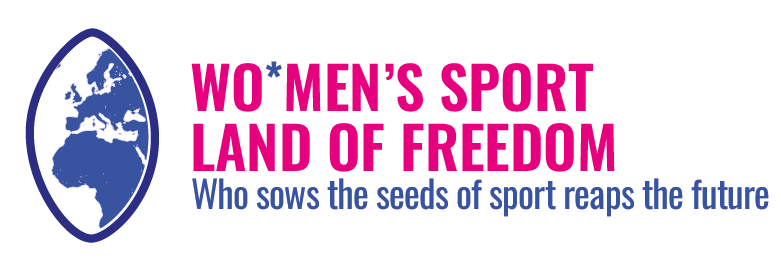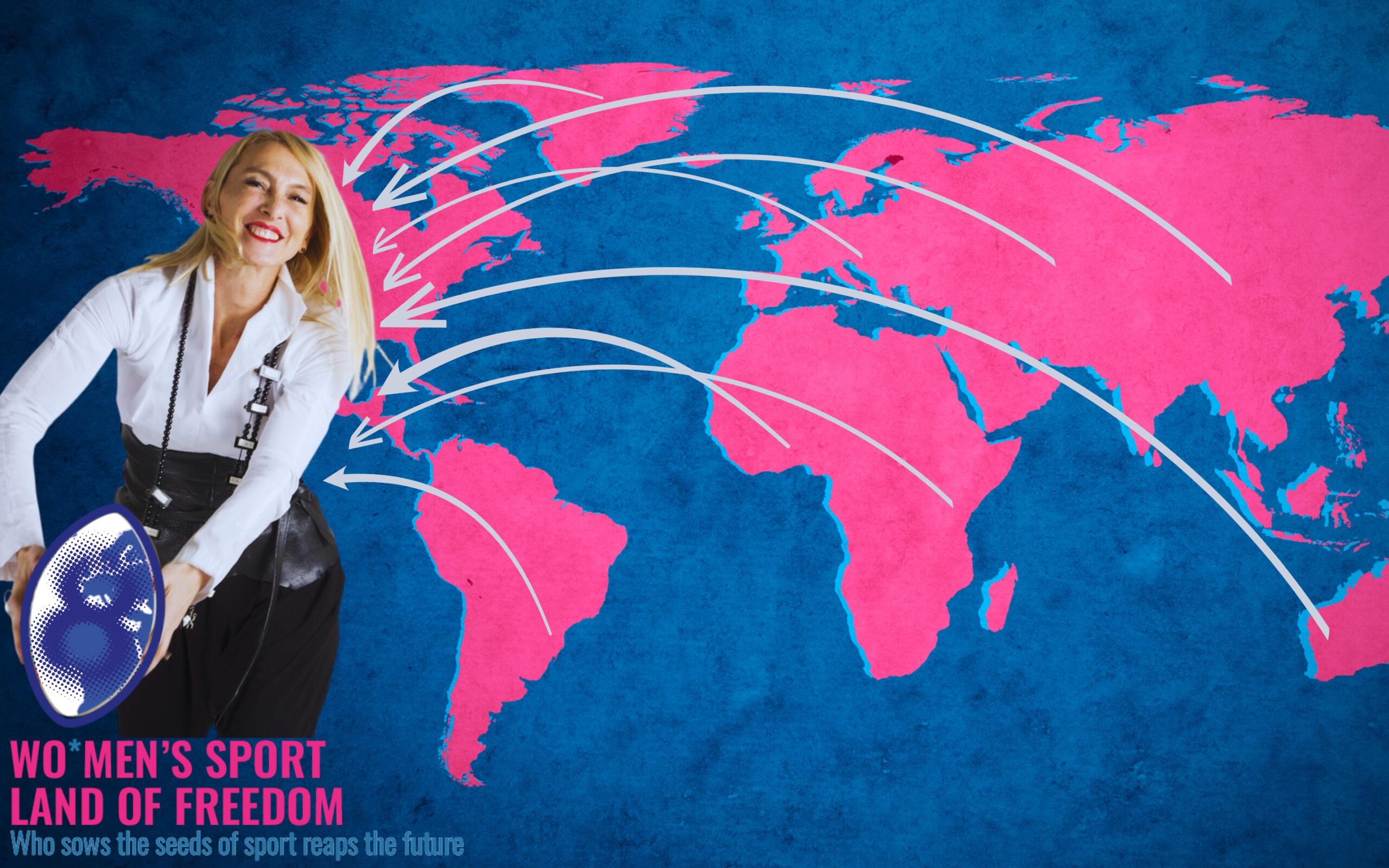
IRELAND: FREEDOM IN RUGBY IS BEING YOURSELF.
“Freedom in Rugby is being yourself”
Ailsa Spindler
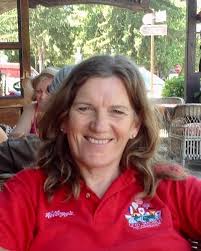
Su Carty
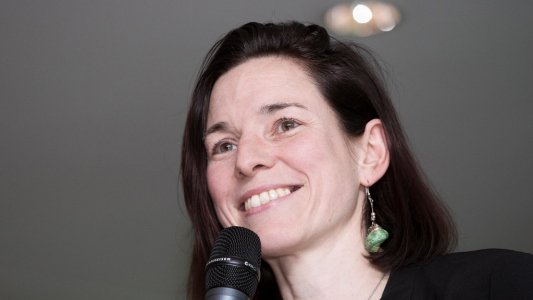
Grainne O’Connell
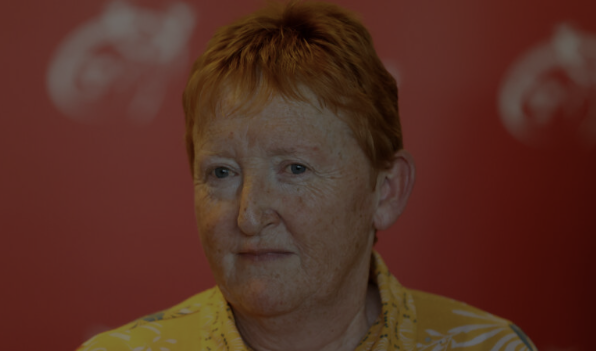
Thanks to:
Su Carty
World Rugby Executive member board
Ailsa Spindler
Former Project Co-ordinator at Gay Project
Grainne O’Connell
Past President Irish Women’s Rugby Football Union – (IWRFU)
- The history of the women’s movement in Ireland
- Testimonials
- Reading Time: 10 minutes
IRELAND - Find out more
Ireland is a European nation with about 5.38 million inhabitants in 2024, with a balanced gender distribution in the population. Women hold about 23.1% of national parliamentary seats (Dáil Éireann). Women’s participation in the labor market is 60.1%, compared to 70.4% for men. In the fourth quarter of 2024, 41.9% of women were employed full-time, while 67.3% worked part-time, often due to family care responsibilities. Despite high levels of female education, disparities remain in leadership roles, pay, and in the distribution of unpaid domestic and care work. (SOURCE: data.unwomen.org; World Bank Gender Data Portal; IPU Parline; CSO – Women in the Labour Market 2023–2024; Snapshot of the Lives of Women and Men in Ireland 2024)
HISTORY OF THE COUNTRY (Grainne O’Connell)
1. When did the women’s rugby movement start in your country and what is the history of women’s rugby in your country? How many clubs are there, and how is women’s rugby structured in your country?
The Irish Women’s Rugby Football Union (IWRFU) was founded in 1992. Ireland made its international debut on 14 February 1993 in an away friendly against Scotland. It was also Scotland’s first international match. The game was played at Raeburn Place in front of more than 1,000 spectators. Ireland was coached by Alain Rolland, while among Scotland’s coaches was Sandy Carmichael. Scotland won 10–0 thanks to two tries by their captain, Sandra Colamartino. Ireland’s first captain was Jill Henderson. A year later, on 14 February 1994, Ireland played its first home international match, a return game against Scotland at Ravenhill. Again, Scotland won, this time 5–0. From 1994 until its affiliation with the IRFU in 2001, the IWRFU was managed by a volunteer committee from the country’s four provinces. This committee, led by a president, oversaw all aspects of the game, from international to domestic activities. During this period, the IWRFU also played a key role in the Women’s Home Nations Committee, which would later become the Women’s Six Nations Committee. In 2008, the IWRFU merged with the IRFU, and since 2009 the women’s national team has been administered by the IRFU. Ireland has participated in every Women’s Rugby World Cup since its first appearance in the second tournament in 1994. Ireland’s debut came on 13 April 1994 with an 18–5 victory against a Scottish Universities selection, which was also Ireland’s first ever competitive match. Ireland’s best World Cup result came in 2014, when they finished fourth after defeating New Zealand and winning Pool B. Following an opening 23–17 win against the United States, Ireland faced defending champions New Zealand in the second match.
Thanks to tries by Heather O’Brien and Alison Miller, plus two conversions and a penalty by Niamh Briggs, Ireland won 17–14. It was only New Zealand’s second ever World Cup defeat. It was also the first time Ireland had faced New Zealand, making them only the second Irish team after Munster in 1978 to beat a New Zealand national side. The result was described as “one of the greatest upsets in tournament history.” Ireland then reached the semi-finals by defeating Kazakhstan 40–5, but finished fourth after losing 18–25 to France in the third-place playoff. Ireland failed to qualify for the 2022 Rugby World Cup, finishing third in the qualification pool played in Italy in September 2021. / Women’s Six Nations: Ireland made its Six Nations debut, then called the Women’s Home Nations Championship, in the inaugural 1996 edition. Their first match was against Scotland on 21 January 1996. Through the 1990s and early 2000s, Ireland never contended for the title and often finished last. Before their breakthrough title in 2013, their best result was third place. They did not participate in 2000 and 2001, when Spain replaced them. When Ireland returned in 2002, the tournament was officially renamed the Six Nations.
That year, Ireland also suffered their heaviest defeat, a 79–0 loss to England. Ireland’s first Six Nations win came in 2005 with an 11–6 victory over Wales. On 10 March 2007, Ireland beat Scotland for the first time (18–6 at Meggetland). In 2009 they defeated France for the first time. In 2013, Ireland won their first championship, also securing the Triple Crown and Grand Slam. After opening with a narrow win over Wales (12–10), on 9 February 2013 Ireland beat England for the first time, 25–0, with Alison Miller scoring a hat-trick. On 23 February they sealed the Triple Crown with a 30–3 victory over Scotland. On 8 March, a 15–10 win against France effectively clinched the title, confirmed the following day when Italy failed to beat England. The Grand Slam was secured with a 6–3 win over Italy on St Patrick’s Day, with two penalties from Niamh Briggs. In 2015, Ireland won a second title and a second Triple Crown in three years, clinching the championship on points difference ahead of France, with four wins from five matches. To win the title, they needed to beat Scotland in the final match by at least 27 points, and they did so with a record 73–3 victory. / FIRA Women’s European Championship: Ireland also competed in the FIRA Women’s European Championship, debuting in 1997. Their best result was third place in 2008. In 2004 they won the Plate Cup by beating Spain 20–12 in the final. Currently, there are about 3,500 girls playing mini rugby (U8–U12), 6,863 girls aged 14–18, and 5,113 adult women, across 397 teams nationwide. 176 schools participate and 59% of Irish clubs offer women’s rugby. There are also over 900 female coaches and more than 25 female referees. The IRFU is reviewing the domestic structure of women’s rugby with stakeholders and the High Performance Department. The ambition is that every woman and girl in Ireland should have the opportunity to play and enjoy rugby. For those aiming at elite level, the goal is to ensure proper pathways, with significant investment. The IRFU has drafted three proposals for a domestic competition and presented these options to the provincial women’s subcommittee chairs, who consulted directly with AIL women’s clubs for feedback. A seasonal plan was also presented, considering competitions that affect player availability: the WXV, Celtic Challenge and Guinness Women’s Six Nations. One proposal – a league with home-and-away matches and the removal of the Senior Cup – received approval from all four provinces and support from the Women’s Game Advisory Group and the IRFU Rugby Committee. Clubs have also been informed that, starting from the 2025/26 season, a points system will be introduced for players. This will reward clubs that develop their own pathways and grow players within their system, while also helping athletes who want to establish themselves in AIL women’s clubs to choose where to continue their sporting journey. The “dual status” will remain largely unchanged: clubs will be allowed five players with this status without seasonal appearance limits, but valid justification will be required for their use. Speaking about the changes, Women’s Development Manager Amanda Greensmith said: “As a Federation, we are committed to developing and improving the women’s game in Ireland, and feedback from players and clubs is fundamental. The Energia AIL Women’s Division has been in place for many years, but with the accelerated growth of the elite side, we now have the opportunity to reinvent the domestic league and ensure an exciting, dynamic format.”
2. Do you think playing rugby has a social impact for women in your country?
Sport is a powerful platform for the empowerment of women and girls and for promoting gender equality. However, women in Irish sport face enormous challenges. Despite the obvious value of sport, in Ireland: Only 7% of girls reach the recommended levels of physical activity; 50% of women drop out of sport by the age of 20; Irish girls have one of the lowest self-esteem levels in the world; Only 6% of sports media coverage is dedicated to women’s sport. The lack of visibility and female role models in sport makes girls and women feel they do not belong in this world. This lack of support impacts physical and mental health, as well as personal and professional development. Gender equality is an ongoing battle. Social conditioning, cultural norms, and unconscious biases — including misogyny and inappropriate behaviors — are deeply rooted in society. The keys to changing generations of inequality are education, visibility, dialogue, and targeted policies. The IRFU is committed to challenging these statistics and changing the rules of the game for women in Ireland, making the acceleration of women’s development a strategic priority.
3. In your opinion, what can rugby offer to women in your country?
Having been involved in rugby in Ireland since the beginning, I can start by saying what it has given me and then expand that answer to the women of my country. For me, rugby over the past 35 years has been extremely motivating: it has given me self-confidence, knowledge, lasting friendships, the ability to be strong and courageous, and to face whatever life throws at me. For the women of my country, rugby can offer resilience, courage, self-esteem, and a sense of belonging. They can learn key skills such as leadership, self-confidence, and teamwork. They can also learn how to respond after a defeat or rejection — and that can be liberating and extremely empowering.
JOURNEYS THROUGH RUGBY (Su Carty – Ailsa Spindler)
LISTEN TO THE FULL INTERVIEW HERE: https://www.youtube.com/watch?v=nuxFn5MUzrk
1. When did you start playing rugby and how did you discover it?
Su: I started playing rugby in my early 20s. I was working in a new job in Dublin. It was a Monday morning coffee break, we were chatting about sport results from the weekend and a colleague Joanne said, ‘you’re into sport, do you want to try rugby?’ I went home and told my house mate I was going to give rugby a try. She got really excited and said she would come with me. She used to play in Sligo and was looking for a club in Dublin! We went to our first training session the following Tuesday, we got such a warm welcome and met the nicest people, I was immediately hooked!
I always watched rugby with lots of other sports from when I was a kid, I remember watching the 5 Nations as it was back then. But I did not know women played rugby until Joanne asked if I wanted to give it a try!
2. What has rugby taught you that has had an impact on your daily life? Can you give an example of when a rugby mindset was useful to you?
Su: There are so many lessons from rugby that have impacted my life! Here are my top 3:
First, you have no idea what you might enjoy or be good at until you give it a go!
Second, say yes when an opportunity arises and work out the detail after.
Third, you don’t have to have everything worked out before you take on a leadership role and make a difference.
When I think rugby mindset I think courage, strength, determination, passion and team. This mindset has been helpful so many times in my life. One that stands out was starting my own business. I finished working with World Rugby at the end of 2015. I didn’t have a plan of what I would do next in my career, I just knew it was the right time to move on. I had the courage to take that step. I set up my own business, working with companies in performance and wellbeing. I didn’t have it all worked out, but that sense of determination, passion about making a difference and doing what I love, and learning to get support around me all made a difference and I am in business over 10 years now!!!
Ailsa: I believe rugby has effects that go beyond the obvious. (…) For me, rugby gave me the freedom to be myself, the confidence to say: “This is who I am.” (…) Rugby is a great way to discover who you are, what you are afraid of, and to realize that the things that scare you actually aren’t that scary. This is the kind of approach that has helped me in life. We all face things in our daily lives that we don’t like. (…) But if you approach things like a tackle — recognizing it might be unpleasant, but doing it anyway and doing it well — you gain a huge sense of accomplishment. Things that are not difficult — where’s the satisfaction in doing them? Overcoming challenges is really important. That’s probably the biggest lesson I’ve learned from rugby. We all remember the first time we had to tackle someone bigger and stronger than us. (…) The best tacklers are the ones who know it will hurt a bit, but enjoy the tackle. That’s the approach that has helped me in life.
3. Can you give me three words that connect rugby with freedom?
Su: Self-expression, joy, and heart.
Ailsa: Identity → Rugby gave me the freedom to be myself. Inclusion → Rugby is for everyone. No one should be excluded. Expression → Freedom means being yourself, exploring what it means to be you.
4. What does living in a land of freedom mean to you?
Su: That’s a big question! To me it means being free to choose, live free of harm, in peace, free to participate, free to express yourself, belonging where you are, being respected and valued, free to reach your potential and make a difference for others.
Ailsa: Freedom means being yourself. Exploring what it means to be yourself — but with respect for others. You can’t just behave however you want: it’s about discovering what’s inside you. Who am I? What is important to me? What do I need to learn from life? No one has ever objected to my presence on the team — not my teammates, not the opposition. It’s a manufactured fear — a “false trail” — used to exclude trans women for broader social reasons.
5. What object represents you and why? What is an aphorism that guides your life?
Su: I think a pair of runners, I am always on the move!!!
‘Mol an óige agus tiocfaidh siad’, meaning “praise the youth and they will flourish”. And I don’t think it is limited to the youth!!
Ailsa: A French pocket knife. It represents practicality — I’m a practical person. It is warm to the touch, unlike plastic or metal which are cold. I hope I’m also a warm person. (…) But I can make a sharp cut when needed. A quote by Oscar Wilde: “Be yourself; everyone else is already taken.” At first it sounds like a cliché, but it’s profound: everyone is themselves. You shouldn’t try to copy others. If you try to be like Dan Carter, you will fail. You should strive to be the best version of yourself. You improve day by day with experience, with a little more humanity, as you go through life.
